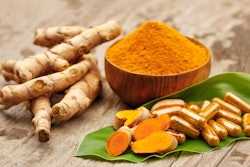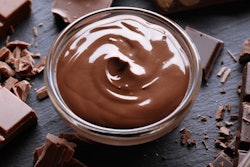
SAN FRANCISCO - Pass the dark chocolate and berries. Antioxidants found in these and other common foods and spices can help boost oral health, according to a presentation at the 2019 ADA FDI World Dental Congress.
"You can think of antioxidants as the natural defense system in our body," presenter Karen Davis, RDH, told DrBicuspid.com.
Antioxidants promote health by combatting damage from free radicals, a term that has less to do with the hippies in San Francisco and more to do with oxidative stress. Under certain conditions, oxygen molecules can split into single atoms with unpaired electrons. These atoms, known as free radicals, can bind with other electrons and cause damage.
 Karen Davis, RDH.
Karen Davis, RDH."While there are many types of free radicals, excess amounts of unstable free radicals -- called oxidative stress -- can ultimately damage our DNA and promote disease," Davis said. "Antioxidants are molecules that can offset these free radicals and the damage they can do to our health."
Oxidative stress has been linked to a wide range of conditions, from cancer and caries to Parkinson's and periodontal disease. Many of these diseases are initiated or exacerbated by chronic inflammation, another factor influenced by oxidative stress. Antioxidants can help reduce this damage, Davis noted.
"Because antioxidants essentially act as the scavenger system to neutralize free radicals, both in the oral cavity and the rest of the body, we need an ample and diverse supply of antioxidants to protect us from disease," she said. "In the case where disease or inflammation is already present, increased antioxidants can help reverse or prevent damage at a cellular level."
Davis recommended consuming a healthy supply of antioxidants daily. Fortunately, antioxidants can be found in many types of foods, drinks, and spices.
Notably, fruits and berries with deep colors, including cherries, dark green leafy lettuce, and sweet potatoes, tend to be naturally high in antioxidants. Turmeric, cinnamon, ginger, and green tea also have natural antioxidants, as do some treats such as vanilla beans, dark chocolate, and red wine.
“You can think of antioxidants as the natural defense system in our body.”
Antioxidants can also be applied topically, Davis noted. Topical antioxidants can be especially good for patients who are prone to oral inflammation, including those who use tobacco products, have poor diets, or are under high stress.
"Just like it sounds, topical antioxidants are formulated in a way to be applied topically and absorbed into the mucosa or oral tissues to offset the effects of oxidative stress inside the oral cavity," Davis said. "Topical antioxidants can slowly absorb into the tissue and release their anti-inflammatory properties over time, so patients should be instructed not to rinse immediately after use of topical antioxidants and benefit from numerous exposures daily."
While Davis has never had a patient directly ask about antioxidants, the topic is easy to tie into other conversations about nutrition, inflammation, and oral health.
"Some of the best advice I give patients is to not dilute the anti-inflammatory effects of natural antioxidants in their diet through consumption of proinflammatory foods such as sugary drinks, processed foods and meats, and excess chips and desserts," Davis said. "Dental professionals cannot stress this too often as the typical Western diet most of our patients consume is high in proinflammatory choices and low in anti-inflammatory, antioxidant choices."
Davis recommended asking patients how many servings of fruits and vegetables they eat daily since plant-heavy diets can also promote gut, brain, heart, and mouth health. And if patients decide to boost their oral health through dark chocolate and red wine, Davis advised them to do so in moderation.
"Most people are relieved to know that dark chocolate and red wine are also high in antioxidants," Davis said. "But the calories associated with those choices mean moderation is key."



















